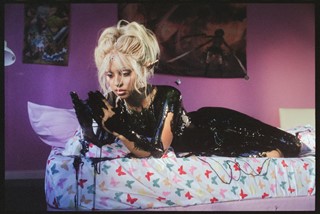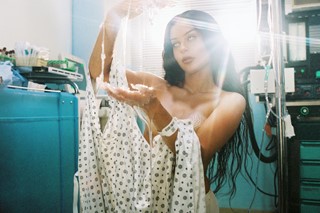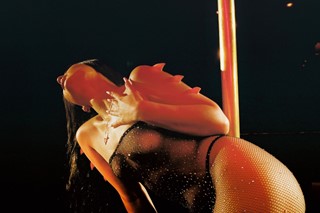Once upon a time, we snuggled under the covers just before drifting to sleep, listening to heroic tales of triumph over adversity. Mystical figures with magical powers filled our imaginations with fantasy, spectacle, and myth, while simultaneously imparting an array of morality tales on our developing minds. We may have dreamed of becoming Cinderella or rooted for the Frog Prince’s freedom from a witch’s curse, coming to believe that despite all obstacles, good will always win.
But life is more complex than that. Sometimes simply surviving to tell the tale is victory in itself. For photographer Petra Collins, fairy tales opened her mind to new realms far beyond the scope of her everyday life while growing up in the suburbs of Toronto during the 1990s and 2000s. Her mother, who fled Soviet-ruled Hungary during the 1980s, didn’t allow Collins to watch Disney movies or conventional cartoons. Instead, she spent her childhood absorbing Hungarian folktales made in the 1970s.
“They were so psychedelic, violent, but also beautiful,” Collins tells AnOther. “I was looking at work made from a collective trauma during the Soviet regime and digesting that as a child, but also experiencing my own trauma at the same time. As a child, I struggled with reading and writing in school, and the way I related to the world was by making work or dancing, creating any type of art. I lived in different realities as I think most artists do. Half of it was disassociating and half was a way of properly experiencing the world.”
Drawn to the striking contrast of bright and exciting visuals paired with haunting narratives, Collins came to realise her own desire to create fairy tales that cast supernatural femmes in contemporary roles. “I was connecting more with my childhood because I was seeing fairy tales more in our visual landscape,” says Collins who notes how the pandemic increased the time we spent online. “We had to communicate through these avatars, which are like a type of tale we tell everyone. We normalised using filters and I was seeing these creatures emerge.”
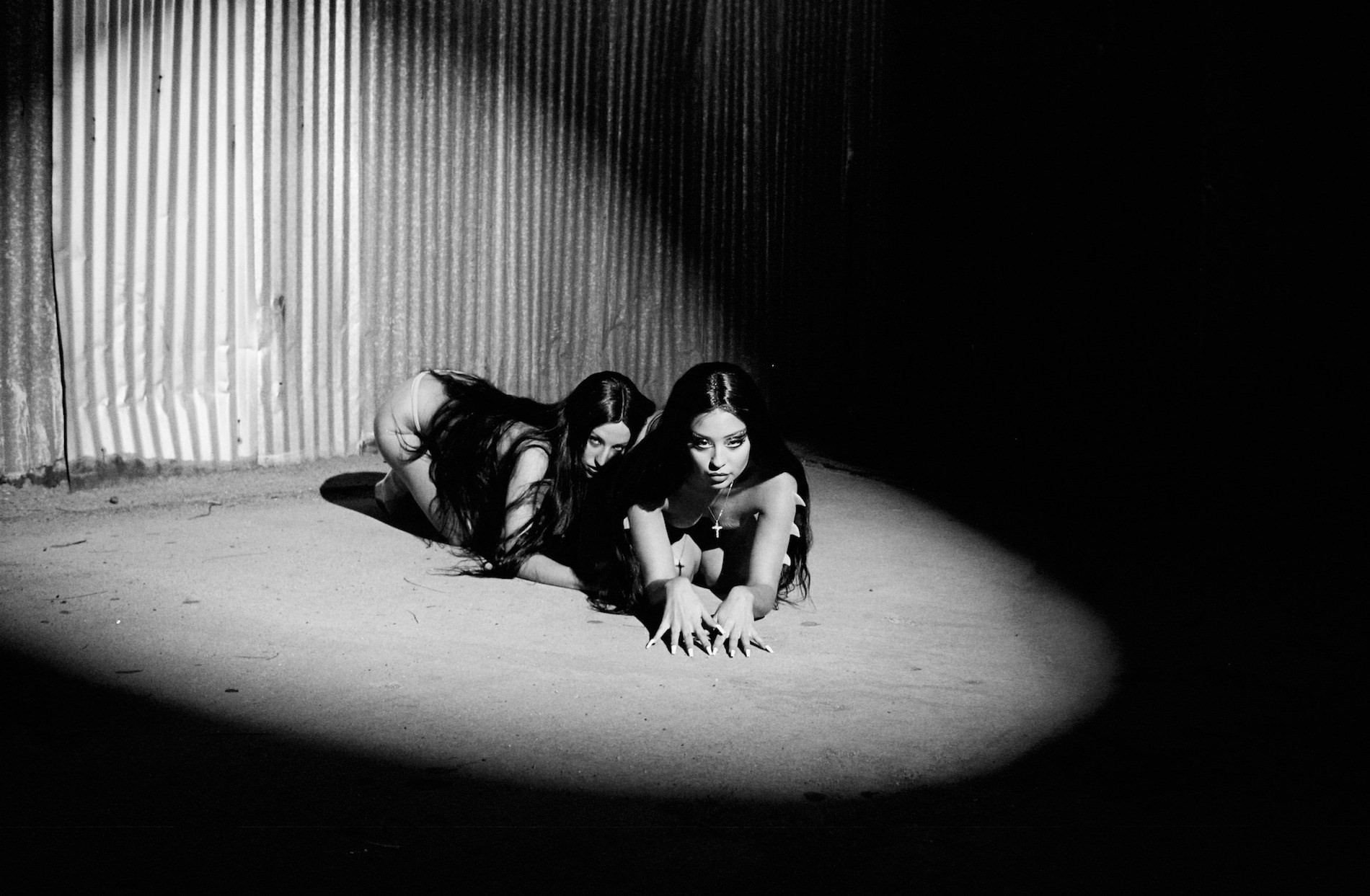
In summer 2020, Collins added her own contribution to the mix, posting a photograph of a fairy on her Instagram. As fate would have it, Euphoria star Alexa Demie was enthralled. Hailing from Los Angeles, Demie grew up surrounded by the Mexican folklore of her mother, grandmother, and aunts, mesmerised by the lyrical, haunting tales of secret realms.
Demie reached out to Collins to express her desire to play such a character, and they decided to do a photoshoot. In their shared love and connection, something much deeper took root. Together they began crafting their own stories of elves, mermaids, sirens, water sprites, fallen angels, witches, banshees, and fairies – each with a modern twist on the age-old archetypes. Collected in the new book, Fairy Tales (Rizzoli), Collins and Demie proffer a series of fabulous fables that are equal parts sensual, playful, and poignant.
In “Sirens,” Demie dons sparkling black mesh, a pink thong, white ankle socks, and Lucite heels before joining another woman on a strip club stage to dance in a timeless tale of the perilous male gaze. “Sirens enchanted all who came near them,” the story reveals in a mischievous text, handwritten by artist Evita Flores, who also created illustrations for the book.
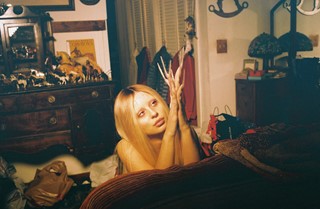
”If any person drew close and heard the singing and saw the dancing, they would never return to their home again,” the story continues. “She had never wished for this fate. Why did being alive and being a sexual creature make her a monster? Why was her body a torture tool? She was told that sirens never ceased their efforts to attract an audience. But, she thought, what if the audience was seeking me? ‘It’s your fault. You’re asking for it.’”
It’s a familiar refrain to femmes from all walks of life, and one that traditional fairy tales deftly skirt by painting men as saviours to damsels in distress. But in these stories, it is the women who must save themselves – one of the many hard-won lessons Collins shares through her work. “Growing up, the female-presenting body was seen as an object and not valued, so the focus of my life was on how I presented visually and sexually,” she says.
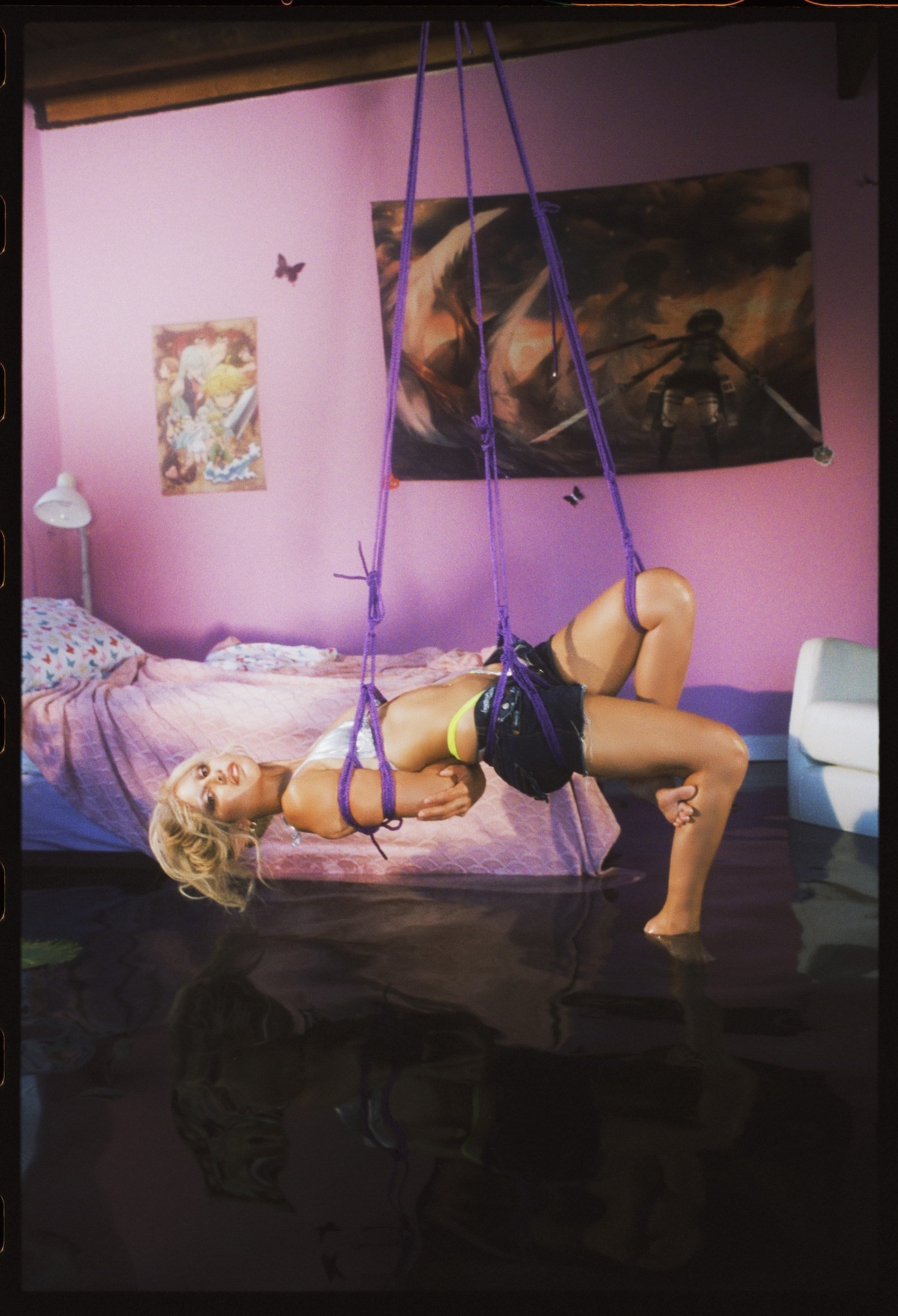
“I started creating work as a teenager, and that was at the forefront of my work because I was constantly trying to figure out where I sit in the world, what my sexuality means to me, and how to subvert it and take it back. I’ve been trying to work through that and it’s never ending. When the work is finished I feel like I’ve reached another level of knowledge, but then it always opens up another world of questions.”
The end … for now.
Fairy Tales is published by Rizzoli and is out now.
